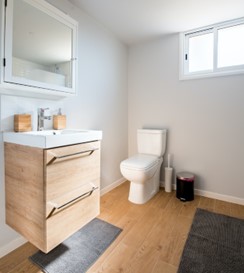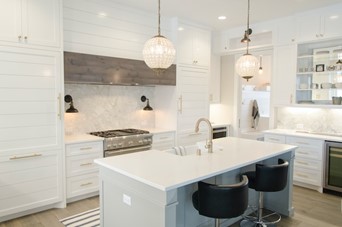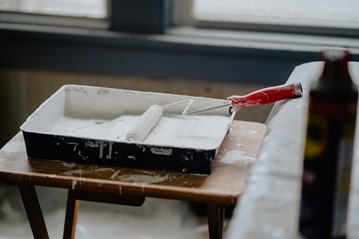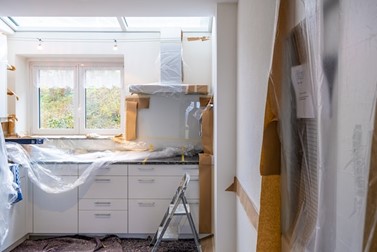Areas to Focus on When Flipping Houses for Profit
The appeal of flipping houses is evident — who doesn’t want to earn a ton of money turning eye sores into beautiful homes? However, Brad Ransome says that many rookie flippers often misunderstand the renovations that make the whole ordeal worth it.
While purchasing and renovating properties is a legitimate way to earn money, budding fixer-upper moguls need to learn the differences between renovations that’ll flop and those that’ll actually flip.
What to Fix When Flipping
Unappealing homes requiring beautification allow individuals to sell for profit without investing too much time, money, or effort.
However, not all renovations add value, and newbies are especially vulnerable to spending more on rehabilitation than the building is worth.
To avoid falling prey to the above, wannabe flippers should only conduct the following money-making repairs/renovations:
Exterior Facades and Landscaping
First impressions matter. Where property is concerned, this means having exceptional curb appeal. People judge properties from the minute they drive by, with negative first impressions incredibly hard to nullify.
Thus, flippers must ensure the exterior is clean and stylish by:
- filling driveway/walkway cracks.
- applying fresh layers of mulch.
- clearing clutter.
- mowing the lawn.
- trimming shrubs and tree limbs.
- replacing or repairing windows, screens, and/or shutters.
- power-washing or cleaning/repairing the siding.
- painting wood shutters, the front door, and/or the trim.
- ensuring the door is beautiful, yet functional.
- replacing dying/dead shrubs/flowers.
- replacing gutters, storm doors, mailboxes, and exterior light fixtures.
Kitchens and Bathrooms
Upon making the exterior presentable, flippers can focus on the inside. Unfortunately, it’s at this point that newbies tend to do too much. So, aside from a deep clean, they should try to focus on the below larger renovations such as kitchens and bathrooms:
For the kitchen, flippers should:
- refinish cabinets, adding new pulls if necessary.
- replace countertops if necessary.
- install new faucets and a sink.
- add new liners to the cabinets/drawers.

For the bathroom, flippers should:
- install a new vanity and fixtures.
- apply fresh sealant around the tub or shower, sink, and toilet base.
- replace shower curtains or install glass doors.
- fit a new toilet seat.
- scrub tile grout.
Basements
While the basement doesn’t need to look especially pretty, flippers can turn a more significant profit by:
- sealing cracks in the walls.
- sweeping the rafters.
- dusting pipes, ductwork, and wiring.
- tacking dangling cables to the walls or ceiling.
- painting the floor with gray enamel paint.
- installing new windows, if applicable.
- adding insulation.
- whitewashing the concrete/cement-block walls with sealing paint.
What Not to Fix when Flipping
The above renovations and repairs ensure flippers earn as much profit as possible without spending too much time, effort, or money. Unbeknownst to most first-timers, there is such a thing as improving homes to the point where it’s too luxurious for the market.
Aesthetics are subjective. Therefore, flippers should take care not to personalize their projects. Otherwise, they limit their pools of interest buyers. Sticking to the basics (kitchens, bathrooms, basements, and exteriors) and ensuring appliances are working optimally is far more important than sinking thousands of dollars on renos that are as important to market buyers.


